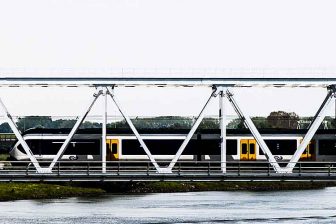International Transport Forum releases annual statistics update
new data on major trends in the transport sector
The global economic crisis and the collapse of world trade in 2009 had a major impact on the transport sector, according to first-hand statistical figures for 2009 published by the International Transport Forum (ITF) at the OECD.
World container traffic (TEUs) fell by 26% in 2009, while air freight ton-km dropped by 10%. Preliminary data for 2009 also indicate a 23% reduction in rail ton-km and a reduction of just over 21% in road ton-km in the European Union. Rail freight data for the United States and Russia show declines of nearly 14% and 12% respectively during the same period.
Passenger transport has not been affected as significantly as freight transport. Still, air passenger transport in IATA member countries dropped by 3.5% in 2009, about the size of the fall of rail passenger transport (-3.8%) in the 52 member countries of the International Transport Forum, according to the preliminary figures. Data on passenger transport by private car are less detailed but overall indicate a decline of more than 1% in the EU in 2008, where data is available.
Short-term data indicate that recovery in transport started towards the end of 2009. For example, the decline in rail freight came to an end in Q3 of 2009 in a number of countries. However, overall rail freight figures remain at depressed levels compared to their pre-crisis levels.
The economic crisis resulted in many households postponing purchases of durables like cars, creating serious difficulties for manufacturers. New registrations of private cars in the ITF member countries dropped by 3.5% in 2009 versus 2008, according to preliminary data. Several governments included support for car purchase in their economic stimulus packages. While the scope and terms of stimulus package schemes varied significantly, a number of countries did see a rise in the number of new registrations.
In the more mature economies of Western Europe, the US and Japan, the share of transport infrastructure investment as a share of GDP continued to decline to below 0.8% in 2008 (1995: 1%). In Eastern and Central Europe, the strong recent acceleration in the volume of infrastructure investment has shown no signs of slowdown: Investment in inland transport infrastructure increased over 17% in real terms from 2007 to 2008, with only 2.5% growth in Western European countries.
The data are contained in two publications highlighting major global transport trends since 1970 and released by the Paris-based think-tank in the run-up to its annual global mobility summit to be held in Leipzig, Germany, from May 26-28.
The International Transport Forum is a strategic think tank for the transport sector. Each year, it brings together Ministers from over 50 countries, along with leading decision-makers and actors from the private sector, civil society and research, to address transport issues of strategic importance. An intergovernmental organisation linked to the OECD, the Forum’s goal is to help shape the transport policy agenda, and ensure that it contributes to economic growth, environmental protection, social inclusion and the preservation of human life and wellbeing. The 2010 International Transport Forum, to be held on 26-28 May in Leipzig, Germany, will focus on Transport and Innovation: Unleashing the Potential.
U las zojuist één van de gratis premium artikelen
Onbeperkt lezen? Profiteer nu van de introductieaanbieding voor € 10,- per maand.
Bent u al abonnee?



